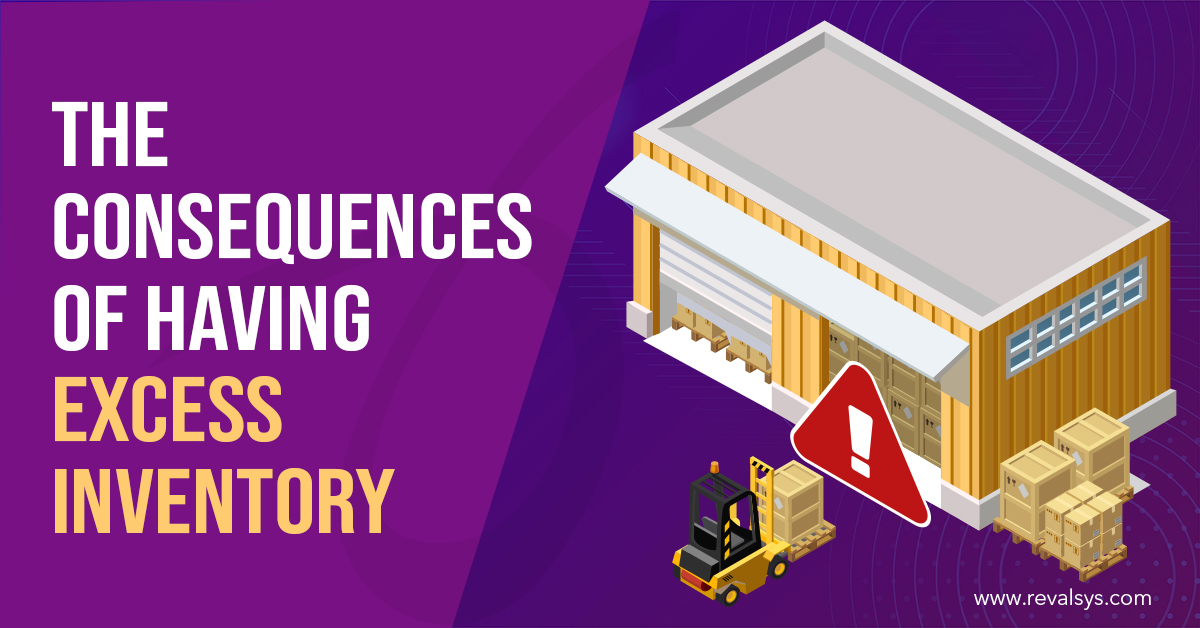
Excess inventory is the part of a business’s inventory that it has not sold yet. It is more than what the business needs to fulfil the demand for that product and is stored in a warehouse until it is sold.
There are a few reasons why businesses that deal with inventory buy it in excess. Most of these businesses are offered discounts when they buy their stock in bulk. They get to save on shipping costs when they buy stock fewer times in large quantities instead of buying it multiple times in small quantities. They can also be ready for unexpected spikes in demand and avoid stockouts. However, with all these advantages, storing excess inventory also has its disadvantages:
Product Quality Goes Down
Many businesses store excess inventory for long periods in anticipation of high demand and repeat orders. However, customer priorities change with budget changes, changing seasons, the introduction of newer technologies, etc. which affects the demand for goods. When goods are stocked without any demand for a long time, their quality degrades. Businesses will be forced to sell their low-quality goods at discounted prices and suffer losses.
Products Become Outdated
Another consequence of storing excess inventory without knowing the demand for it is that they become obsolete after some time. If businesses keep producing the same product without considering the changing customer preferences, they won’t find customers after a while. Also, perishable products come with expiry dates, which means that they can’t be stored for long and have to be sold quickly. If businesses are unable to sell all of their goods, they will have to throw them away and suffer losses.
Company Money Is Wasted
Buying more inventory than required forces businesses to also allocate more money for related expenses such as the purchase, maintenance, and transportation of the inventory. More inventory also needs to be stored in a bigger warehouse which requires more maintenance costs to be paid until the inventory is sold. These costs leave businesses little money to spend on their daily expenses, salaries, debts, etc., and areas that are important for their growth.
Less Place For New Stock
Businesses have to continuously produce new products in keeping with changing customer preferences. If a business stores its old inventory in excess, there won’t be any place left in its warehouse for its new stock. This results in difficulty for the business in fulfilling its orders in time, and in turn, dissatisfied customers. Unhappy customers of a brand will abandon it and spread negative word-of-mouth about it. This also affects the future demand of the brand’s products as customers seek the advice of friends and family before making a purchase with a brand.
Discounts Cause Loss Of Revenue
When businesses buy large amounts of inventory without forecasting the demand for it, they end up with excess unsold inventory sitting in their warehouse. As mentioned before, businesses have to constantly clear out their old stock to make room for new stock. In an attempt to sell their old stock quickly, businesses offer heavy discounts on it. While this brings businesses more customers, it also results in heavy losses for them.
Storage Costs Go Up
The more inventory a business has, the more space it will require to store it. The longer it stores its inventory, the higher will be the warehouse costs it will have to pay like space and maintenance, the former of which differs from place to place. The business will also have to pay more inventory costs like production and maintenance staff fees, transportation fees, etc.
Inventory Is Lost
Natural disasters are a part of life, and no one knows when they can strike. The more amount of inventory a business has, the more losses it will suffer when it loses the stock to a flood, earthquake, fire, etc.
